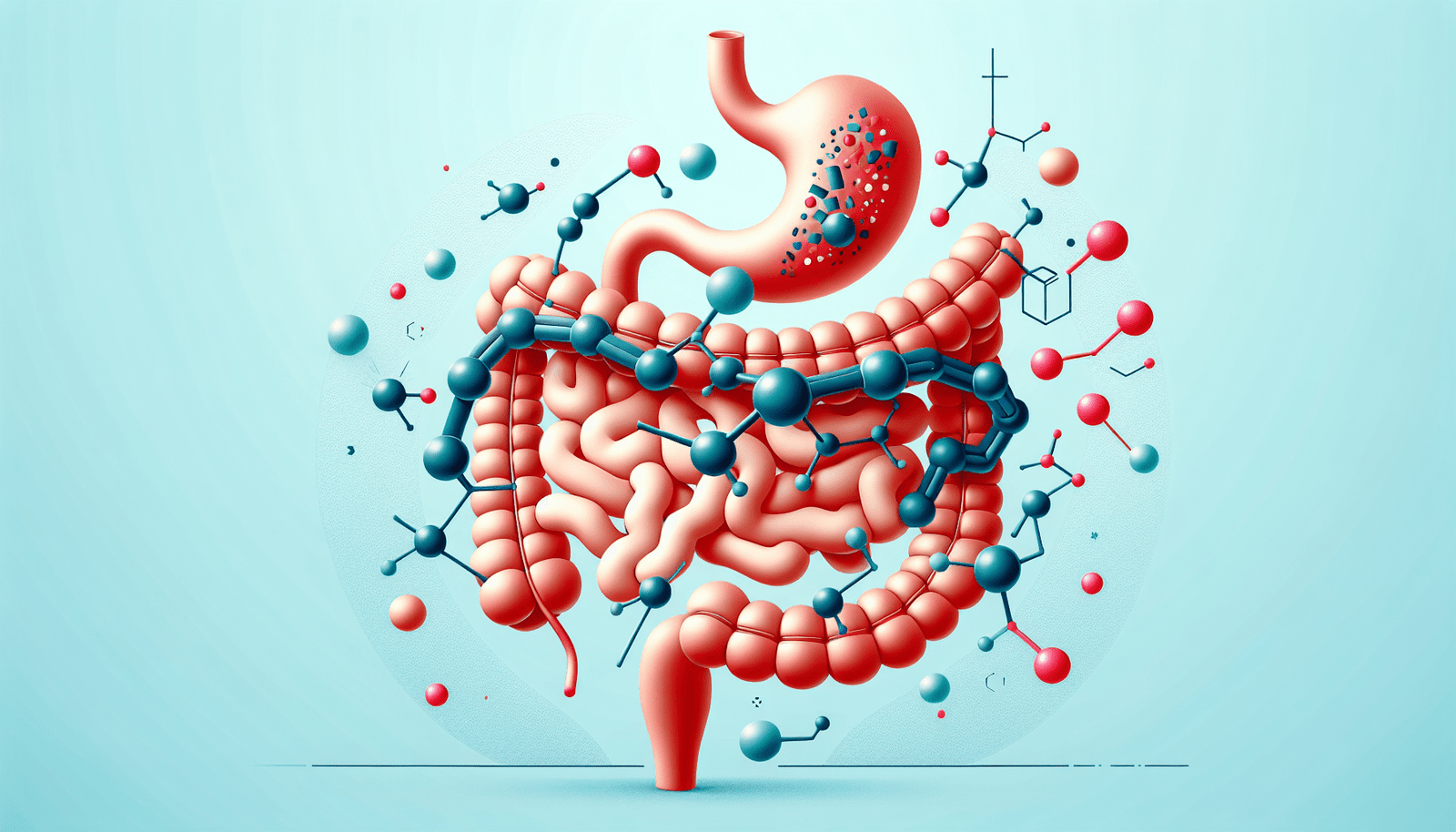Have you ever wondered how your body manages all the different foods you eat and keeps your digestive system running smoothly? Well, one surprising detail lies in a small but mighty player: enzymes. These little proteins do an incredible job breaking down various substances in your food so your gut can stay healthy.
Understanding Oxalates
First, let’s talk about oxalates. Oxalates are organic compounds found in many foods, such as spinach, nuts, and beets. They are natural substances that have both good and bad sides. On one hand, they can bind to minerals like calcium and form oxalate crystals, which, in turn, can be expelled from your body. However, high levels of oxalates can cause problems like kidney stones and other health issues.
The Good and the Bad
To fully appreciate their role, you need to understand that oxalates act like a double-edged sword. They help regulate minerals in your body but can also lead to complications if their levels become too high. Managing oxalate levels is crucial for your overall well-being.
The Role of Enzymes in Digestion
Now, let’s dive into enzymes, those fantastic proteins that break down food compounds. Enzymes are specialized molecules that act as catalysts in various biochemical reactions. In layman’s terms, they speed up the chemical processes that allow your body to absorb nutrients efficiently.
Types of Digestive Enzymes
Your body produces different types of digestive enzymes, each with its own unique role.
| Enzyme Category | Function | Example |
|---|---|---|
| Proteases | Break down proteins | Pepsin |
| Lipases | Break down fats | Pancreatic Lipase |
| Amylases | Break down carbohydrates | Salivary Amylase |
| Cellulases | Break down cellulose (fiber) | Celluclast |
| Oxalate-Degrading Enzymes | Break down oxalates | Oxalobacter formigenes |
These enzymes work in harmony to process the varied foods you consume, ensuring you get the nutrients you need while discarding what can harm you.
How Enzymes Break Down Oxalates
When it comes to oxalates, specific enzymes play a vital role in breaking down these compounds. One enzyme, in particular, Oxalobacter formigenes, is known for degrading oxalates effectively. This enzyme breaks down oxalates into simple components that can be easily expelled from the body without causing harm.
Enzyme Action on Oxalates
So, how does this enzyme work its magic? When you consume foods rich in oxalates, Oxalobacter formigenes, which typically resides in your gut, begins its work. It breaks oxalate down into carbon dioxide and formate, both of which are relatively harmless to your body. Without this crucial enzyme, oxalates could accumulate and potentially turn into kidney stones.
Dietary Considerations
Understanding the role of enzymes in your diet isn’t just scientific; it has practical applications too. To optimize your Gut health and ensure efficient oxalate breakdown, it’s wise to incorporate foods that support your enzyme production. Consuming a balanced diet rich in various nutrients can foster a gut environment conducive to enzyme activity.
Impact on Gut Health
You might be wondering how all this enzyme activity relates to your overall gut health. Well, it’s all interconnected!
Gut Flora and Enzyme Activity
Your gut hosts a complex community of microorganisms, often referred to as gut flora or microbiota. These microorganisms don’t just keep each other company; they play essential roles in digestion, immunity, and overall health. Enzymes like Oxalobacter formigenes are an integral part of this community, contributing to the balance and functionality of your gut.
Conditions Linked to Enzyme Deficiency
A deficiency in essential enzymes can lead to various gut-related issues. For instance, an inadequate level of oxalate-degrading enzymes can result in higher oxalate levels in your system, which in turn can cause kidney stones and even more serious health issues. So, keeping your enzyme levels balanced is crucial for maintaining a healthy gut.
Enhancing Enzyme Production
With all this information, you may be wondering how to boost your enzyme production naturally. Luckily, there are practical steps you can take!
Foods that Boost Enzymes
Certain foods are particularly good at supporting enzyme production. Here are a few you might consider:
| Food | Benefit | Enzymes Supported |
|---|---|---|
| Pineapple | Contains bromelain | Proteases |
| Papaya | Contains papain | Proteases |
| Fermented foods (e.g., kimchi, yogurt) | Supports gut microbiota | Various enzymes |
| Whole grains | Rich in nutrients | Amylases |
| Probiotic-rich foods (e.g., kefir) | Supports good bacteria | Various enzymes |
Lifestyle Choices
Aside from dietary choices, your lifestyle also plays a role in enzyme production. Regular exercise, adequate sleep, and stress management can significantly affect your gut health and, consequently, enzyme efficiency.
Supplements: A Helping Hand?
Sometimes, even with the best intentions, your diet and lifestyle might not be enough to maintain optimal enzyme levels. That’s where supplements come in.
Enzyme Supplements
Enzyme supplements are available for those who need an extra boost. These supplements can be particularly useful for people with digestive disorders or those not producing enough specific enzymes naturally.
| Supplement Type | Benefits | Conditions |
|---|---|---|
| Protease Supplements | Break down proteins | Protein digestion issues |
| Lipase Supplements | Break down fats | Fat malabsorption |
| Oxalate-Degrading Enzymes | Break down oxalates | High oxalate levels, kidney stones |
Consultation with Healthcare Providers
Before diving into supplements, consulting a healthcare provider is crucial. They can offer personalized advice tailored to your specific needs, helping you choose the right supplement and dosage.
The Bigger Picture: Gut Health and Overall Wellness
So, how does all this tie into your global well-being?
Gut Health as a Reflection of Your Health
Your gut is often called your second brain. It’s not just about digesting food; it plays a significant role in your mood, immunity, and even mental health. Maintaining a healthy gut, supported by active enzymes, can act as a cornerstone for your overall wellness.
Holistic Health Approach
A balanced approach that considers your diet, lifestyle, and possibly supplements can help you maintain a robust gut environment, which in turn affects your overall health.
Potential Risks and Precautions
While enzymes are generally beneficial, it’s good to be mindful of potential risks. Over-supplementation or dependency on enzyme supplements can lead to unintended consequences.
Possible Side Effects
Excessive use of enzyme supplements may result in gastrointestinal upset, allergic reactions, or interference with other medications. It’s crucial to adhere to recommended dosages and consult a healthcare provider.
Natural Balance
Striking a natural balance in your diet and lifestyle can often be more effective and sustainable. Over-reliance on supplements might mask underlying issues that should be addressed holistically.

Final Thoughts
Understanding the role of enzymes in oxalate digestion and gut health can empower you to make informed choices about your diet and lifestyle. By supporting your body’s natural enzymatic activities through proper nutrition and lifestyle habits, you can keep your gut—and overall health—in top shape.
It may seem like a lot to digest (no pun intended), but taking small, informed steps can lead to significant improvements in your well-being. So, here’s to better gut health, one enzyme at a time.




